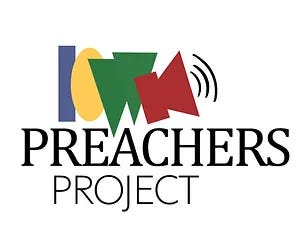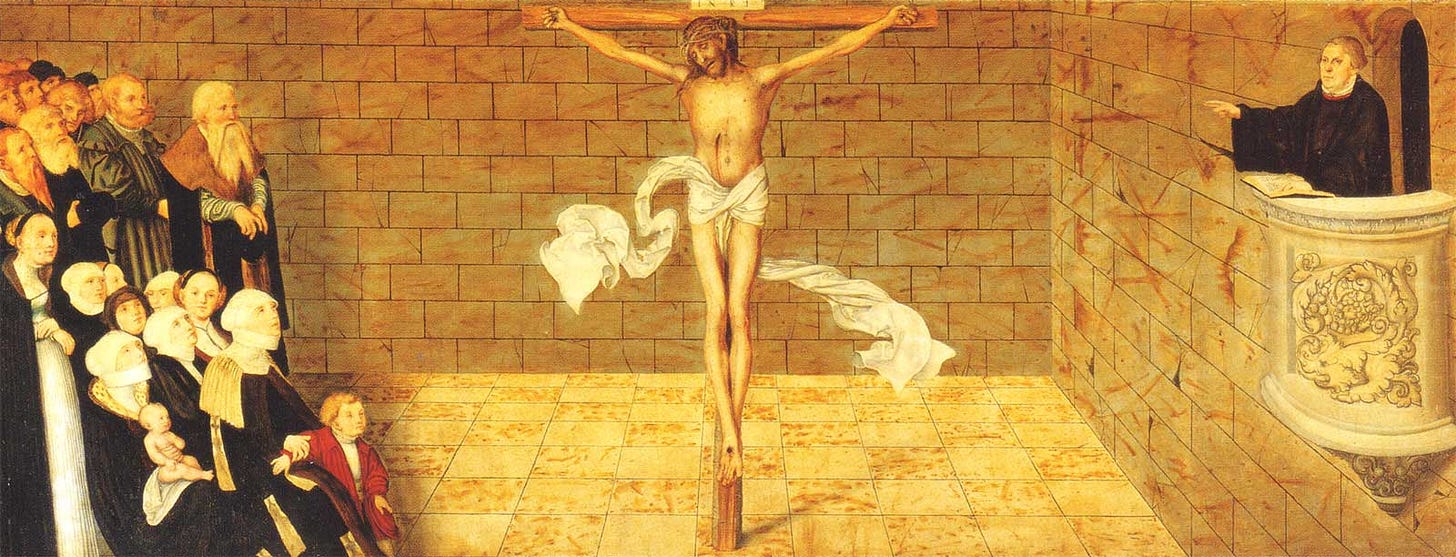Hi Friends,
Here is the recording of Sunday’s sermon on Colossians by friend of the podcast, Dr. Ken Sundet Jones. And this is the perfect time to announce a project that Ken and Jason are coordinating in partnership with Grand View University, Mockingbird, and 1517: the Iowa Preachers Project.
Funded by the Lily Endowment, the Iowa Preachers Project is based in Iowa but not is not specific to preachers in Iowa. We will gather together a cohort of preaching fellows around our shared theological foundation and over three years equip working preachers to proclaim the gospel with clarity and passion.
We will meet three times in person, in Des Moines, Southern California, and Charlottesville, Virginia (Wahoowa).
Ken is the Director of the Iowa Preachers Project.
I am the Preacher-in-Residence (mentoring the fellows on a monthly basis).
Dr. Johanna Hartelius is also part of the team.
The best part— thanks to the Lily Foundation all costs for the Preaching Fellows will be covered. The program kicks off September 22 in Des Moines at Grand View.
Applications went live yesterday. If you’re a preacher and wouldn’t mind spending a little time with me, I encourage you to read more over on the program website.
Check out the project here.
If you’re a working a preacher, apply.
About the Project
Without a doubt, the church's place in the culture is in the midst of radical change, and its preachers face an unknown future. The Iowa Preachers Project at Grand View University provides a unique, supportive environment for the church's public proclaimers to hone their skills as well as a place to discover ways to deliver the gospel in this new environment.
In partnership with Mockingbird and 1517, and with funding from the Compelling Preaching Initiative of the Lilly Endowment, Inc., the Project focuses on building the Body of Christ and on building preachers' skills in delivering compelling messages that bring the word of God to their congregations and the world beyond.
Each year, the Project's preaching fellows are welcomed from across denominations, connect to faithful and worthy mentors and scholars, and explore the breadth and depth of the gospel with one another.
Theological Foundations
From the moment of creation in Genesis to Revelation's Jesus the pale rider coming to battle with a sword in his mouth, God’s relationship with us is wrapped up in his Word. As John says of Jesus in his prologue, “In the beginning was the Word, and the Word was with God, and the Word was God.” The call of the preacher is to enter into the relationship between God and sinners as the mouthpiece through whom God speaks. Preachers may be many things, but they are first and foremost servants of the Word. As in the Lucas Cranach altarpiece of Martin Luther preaching, the church's public proclaimers point to Christ. The proclamation of the gospel is a peculiar kind of speech in which God uses preachers to deliver the benefits of Christ’s death and resurrection to those who stand on the far side of the chasm of sin from God. This means that true preaching actually declares God’s mercy in the here and now. As the Swedish theologian Gustav Wingren wrote, “The preaching of the gospel is essentially the same as absolution. …It does not wait hopefully for faith to appear in a doubting soul, but brings faith about where it is lacking.” [Gospel and Church] There are all sorts of ways for words about God to be entertaining, engaging, or informative. But the actual proclamatory event does something more. God uses human words on the lips of preachers to change the hearer’s identity, status, and future. The clearest, shortest sermon appears in this kind of active language: “You are forgiven for Jesus’ sake.” This is a declaration to its hearers that God has made a decision about them apart from their achievements, attitudes, or piety — or to use Paul’s phrase, regardless of them being dead in sin. This proclaimed promise becomes compelling when the Holy Spirit uses it to create saving faith, that is, the restoration of a person’s broken relationship with God, first, but also the relationship with others and with the world. In The Freedom of a Christian (1520), Martin Luther argued that preaching shifts a person’s understanding of Christ: Jesus “is not simply ‘Christ’ but ‘Christ for you and me’ and what we say about him and call him affect us.” Preachers’ ability to deliver such an unmitigated promise depends on two things. First, preachers must know sin and death present in themselves. Second, they must themselves hear the gracious announcement of Christ “for you.” Preaching is best learned “in the middle of life’s crucible: in our brokenness, failures, and death.” [Ken Sundet Jones, “Luther’s Heidelberg Disputation: A Little Course on Preaching”] The existence of preachers today who have the courage to speak for God is evidence that the Spirit has entered into these low places again and again to make sure people today continue to be freed and raised to new life.
The Iowa Preachers Project at Grand View University gratefully partners with Mockingbird and 1517 with generous funding from the Compelling Preaching Initiative of Lilly Foundation, Inc.














Share this post